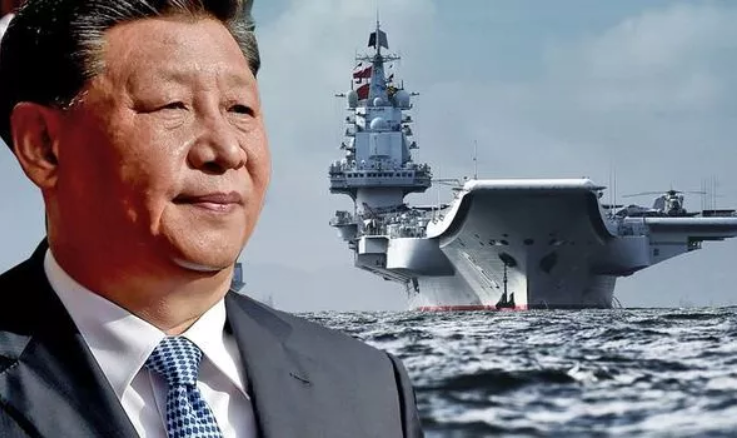US-China Military Conflict Deemed “Highly Likely” To “Almost Certain” Over Next 3 Years
Tyler Durden
Tue, 07/28/2020 – 18:55
A top independent Australia-based think tank which regularly advises the Canberra government has produced a “risk assessment” studying the likelihood of America and China going to war. Involving defense experts around the world, the study was undertaken on the heels of the US sending two carrier strike groups to sail through the South China Sea in provocative “freedom of navigation” operations.
Given that “normalization” with China — a longtime foreign policy emphasis which goes back to Nixon and Carter — appears to have gone out the window during this latter half of the Trump administration, there’s lately been much forecasting on the potential for the US and China to stumble into war. While there’s already for the past couple years been much ink spilled over the possibility of the US and China falling into the so-called Thucydides Trap, this latest assessment is among the most dire predictions to date in terms of conclusions reached.

Top daily newspaper The Australian introduces that leaders in Canberra woefully underestimated the potential for significant regional conflict upon being warned over a decade ago.
“Back 14 years ago in 2006 Australia’s top defence analysts, Air Power, set out in a long document for the Foreign Affairs Committee the emerging power of China contrasting with the looming American decline. It was a remarkable forecast,” the report begins.
Defense leaders at the time ignored and dismissed what they saw as an overly pessimistic view of US capabilities and its role in the world, The Australian continues:
In response the then Department of Defence deputy secretary strategy Michael Pezzullo reflecting his department’s view said:
“It is predicated upon a radically different set of strategic circumstances which, I must say, I do not necessarily see even in the most speculative parts of my crystal ball.”
“It would also require a massive erosion of the US military capability edge which, again, I do not foresee even in the most speculative part of my crystal ball.”
But the new Air Power assessment, which takes into account soaring tensions of the past two months, is being received with a new urgency.
Crucially, the new analysis deems that within the next three years a direct military conflict between the US and China ranges from “highly likely” to “almost certain”:
The defence “crystal ball“ gave the wrong signals but It took almost 14 years for them to discover their error and the options available in 2006 have now mostly disappeared. The defence mistakes have been compounded by similar mistakes by the Department of Foreign affairs.
AirPower last week contacted major defence to strategists around the world to undertake a “risk assessment” of military conflict between China and the US. They rate conflict in the next 12 months as “likely”; over the next two years as “highly likely” and over the next three years as “almost certain”.
Indeed we’ve already seen language out of both sides which too easily shifted from a ‘war of words’ within the usual economic and diplomatic realms, to the more unusual military threats.
Via the Blavatnik School of Government: “When a rising power threatens to displace a ruling one, the most likely outcome is war. Twelve of 16 cases in which this occurred in the past 500 years ended violently.”
Consider for example the Chinese military’s recent response to America’s dramatically ramped up air and navy operations over the South and East China seas: The South China Sea is fully within the grasp of the Chinese People’s Liberation Army (PLA), and any US aircraft carrier movement in the region is solely at the pleasure of the PLA, which has a wide selection of anti-aircraft carrier weapons like the DF-21D and DF-26 “aircraft carrier killer” missiles.
Meanwhile, whether it’s pre-November “distraction” or not, it remains that Washington hawks have appeared to focus their near and long term sights on Beijing, thus at the very least “normalization” is now a thing of the past, with war inching closer on the horizon.